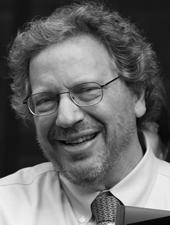Khosravi-Far, R., White, M. A., Westwick, J. K., Solski, P. A., Chrzanowska-Wodnicka, M., Van Aelst, L., Wigler, M. H., Der, C. J. (July 1996) Oncogenic Ras activation of Raf/mitogen-activated protein kinase-independent pathways is sufficient to cause tumorigenic transformation. Mol Cell Biol, 16 (7). pp. 3923-33. ISSN 0270-7306 (Print)
Preview |
PDF (Paper)
Oncogenic Ras activation of Raf mitogen-activated protein.pdf - Published Version Download (1MB) | Preview |
Abstract
Substantial evidence supports a critical role for the activation of the Raf-1/MEK/mitogen-activated protein kinase pathway in oncogenic Ras-mediated transformation. For example, dominant negative mutants of Raf-1, MEK, and mitogen-activated protein kinase all inhibit Ras transformation. Furthermore, the observation that plasma membrane-localized Raf-1 exhibits the same transforming potency as oncogenic Ras suggests that Raf-1 activation alone is sufficient to mediate full Ras transforming activity. However, the recent identification of other candidate Ras effectors (e.g., RalGDS and phosphatidylinositol-3 kinase) suggests that activation of other downstream effector-mediated signaling pathways may also mediate Ras transforming activity. In support of this, two H-Ras effector domain mutants, H-Ras(12V, 37G) and H-Ras(12V, 40C), which are defective for Raf binding and activation, induced potent tumorigenic transformation of some strains of NIH 3T3 fibroblasts. These Raf-binding defective mutants of H-Ras induced a transformed morphology that was indistinguishable from that induced by activated members of Rho family proteins. Furthermore, the transforming activities of both of these mutants were synergistically enhanced by activated Raf-1 and inhibited by the dominant negative RhoA(19N) mutant, indicating that Ras may cause transformation that occurs via coordinate activation of Raf-dependent and -independent pathways that involves Rho family proteins. Finally, cotransfection of H-Ras(12V, 37G) and H-Ras(12V, 40C) resulted in synergistic cooperation of their focus-forming activities, indicating that Ras activates at least two Raf-independent, Ras effector-mediated signaling events.
Actions (login required)
 |
Administrator's edit/view item |

